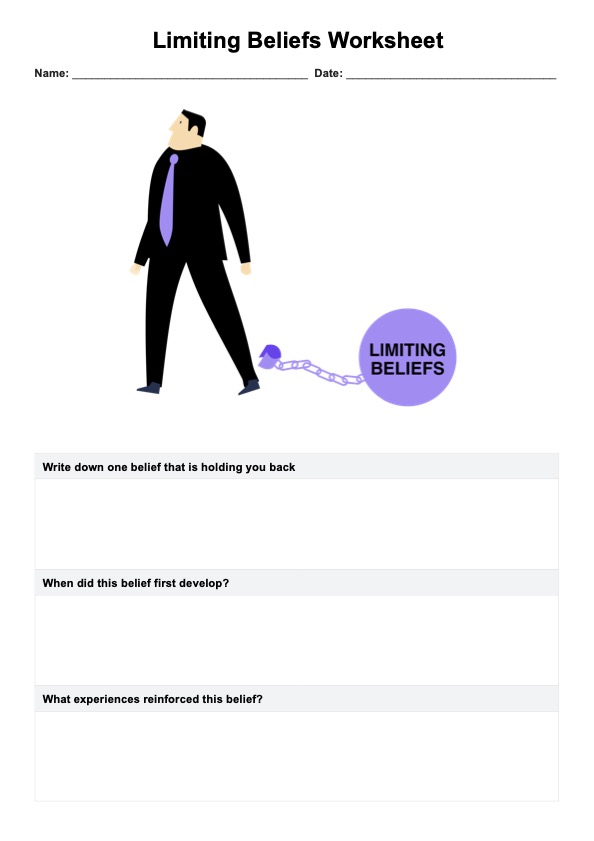Common limiting beliefs often include thoughts such as "I'm not good enough," "I can't succeed," "It's too late for me," and "I don't deserve happiness," which can hinder personal growth and achievement by creating self-doubt and fear of failure.

Limiting Beliefs Worksheet
Help clients identify and overcome self-limiting beliefs with our Limiting Beliefs Worksheet.
Limiting Beliefs Worksheet Template
Commonly asked questions
The best way to remove limiting beliefs involves a multi-step approach: first, identify the specific beliefs that are holding you back; then, challenge these beliefs by questioning their validity and considering alternative perspectives; and finally, replace them with empowering affirmations or new beliefs that align with your goals and aspirations.
The root cause of limiting beliefs typically stems from past experiences, societal norms, or early childhood conditioning. Negative feedback or failures can lead to generalized assumptions about oneself or the world, reinforcing a mindset that limits potential and opportunities for growth.
EHR and practice management software
Get started for free
*No credit card required
Free
$0/usd
Unlimited clients
Telehealth
1GB of storage
Client portal text
Automated billing and online payments











